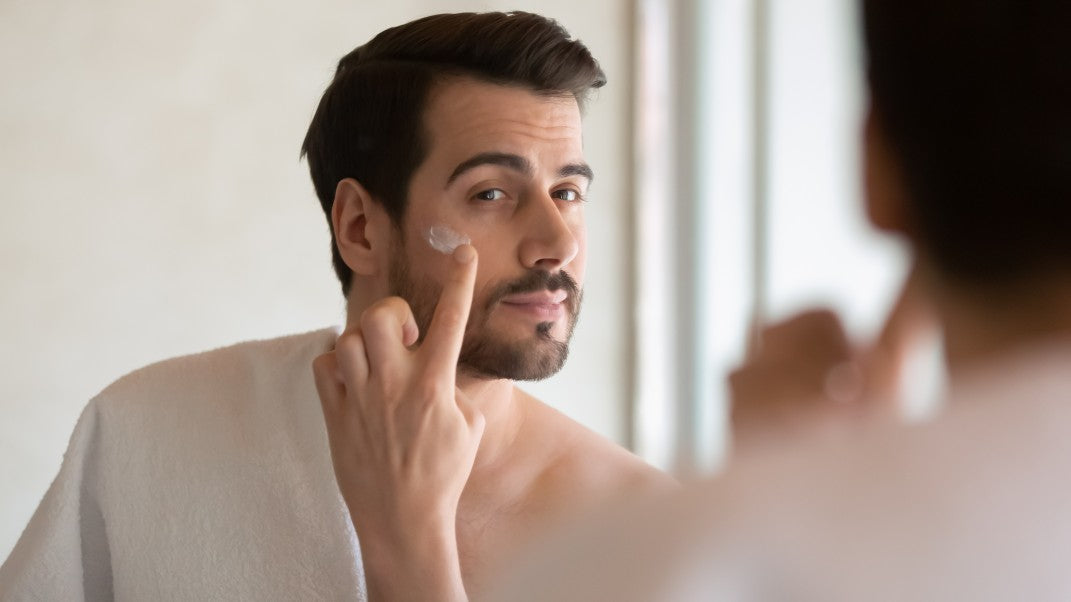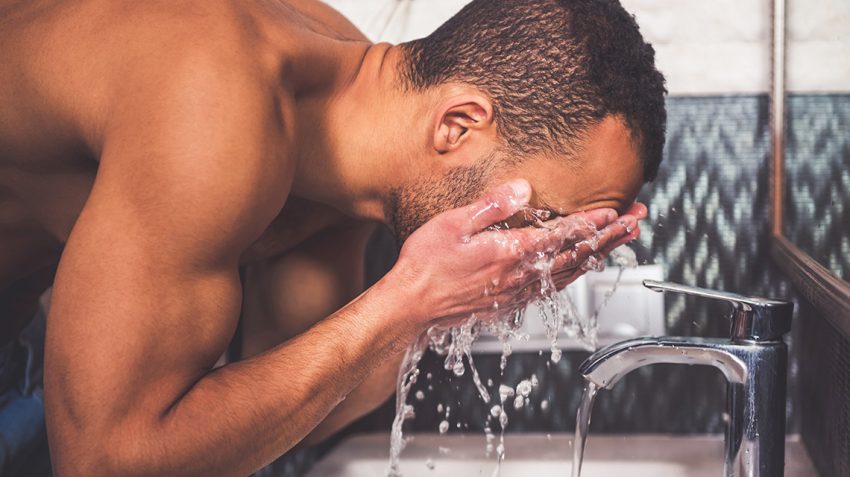Does Moisturizer Cause Acne? 5 Signs You’re Using Over-Moisturizing

When we think of a skincare routine, we typically think about moisturizing. After all, moisturizing can provide plenty of benefits for your skin. But, does moisturizing cause acne? Some speculate that if you over-moisturize, this can actually make your acne worse.
Today, we’ll be de-bunking the question of whether or not moisturizer can cause acne. Then, we’ll also look at some signs that indicate you’re over-moisturizing because regardless, over-moisturizing is bad for your skin.
Are you ready? Let’s get started!
Can Moisturizer Cause Acne?

Plain and simple: excessively over-moisturizing your skin can cause acne. The reason being is that your skin will absorb what it needs to keep your skin looking fresh. The rest of the product then sits atop your face and forms a thin layer of oil, bacteria, and other ingredients.
This layer will then clog the pores and whenever cores get clogged, pimples and zits form. So, yes, moisturizer can cause acne but it only typically happens whenever you over-moisturize your skin.
Other than that, moisturizer can be pretty beneficial for keeping pimples and zits at bay. If you don’t believe us, take a look at some of the reasons why moisturizer can be good for acne and overall skincare.
Why Moisturizer Can Be Good for Acne

However, it’s pretty obvious that moisturizer can also be good for acne. For one, moisturizer helps relieve dry skin and maintain sebum production. It also provides a slew of other benefits for your skin.
Not only does it help your skin stay young, but moisturizer also reduces other blemishes and acne you’re having trouble with. Therefore, moisturizer is more good than bad for acne. You should make sure you use moisturizer in moderation or it’ll backfire on you.
Additionally, there are plenty of moisturizers out there that focus on dry skin, oily skin, and SPF included. If you’re on the hunt for a moisturizer, we got you covered.
5 Signs You’re Over-Moisturizing Your Skin

Sometimes, you don’t realize you’ve over-moisturized until it’s too late. Luckily, there are some telltale signs to help you avoid this. Here are the five most common signs that you’re over-moisturizing your skin.
5. Your Skin is Really Dry
Even though it might sound counter-productive, it is true! Using too much moisturizer will eventually cause your skin to dry up. Whenever you over-moisturize, your skin’s oil production starts to lower.
As a result, your skin will start to lower its oil production and this dries your skin out. At the end of the day, though, choosing the right moisturizer comes down to your skin type.
If your skin is naturally dry, look for moisturizers that have ingredients like Vitamin E and Hyaluronic Acid. Other ingredients like glycerin and urea help attract water to your face.
If your skin is naturally oily, make sure to use a moisturizer that is non comedogenic. This means it won’t add to the excess and clog your pores.
4. You Have Clogged Pores
Speaking of clogged pores, if you have clogged pores, it’s a good sign that you’re over-moisturizing. The reasoning is simple and we’ve already talked about it. If you over-moisturize, the leftover moisturizer just sits on your face.
With nowhere to go, this extra moisturizer will eventually fill up the pores on your skin and clog them, resulting in the production of acne, whiteheads, and blackheads.
3. You Breakout A Lot
This is also a common sign and goes in junction with clogged pores. If you find yourself breaking out a lot, that typically is a good sign that you’re using too much moisturizer for your own good.
Acne breakouts typically result from clogged pores and as we mentioned before, clogged pores are one of the top indicators that you have too much moisturizer sitting on your skin.
2. Increased Sebum Production
If you already have naturally-oily skin, using excessive moisturizer can cause your sebum production to become erratic and unpredictable. When you moisturize, you already have oil on your skin.
Using it cautiously won’t cause any problems, but using moisturizer excessively throughout the day will trigger your sebum production to go off. As a result, you might produce more sebum than you would actually like.
1. Your Skin Feels Tight
This is actually the opposite of what moisturizer is supposed to do. Moisturizer draws water from the air to hold in the skin. This is what relieves itchiness and tightness from your skin. However, when you over-moisturize, you take away that feeling.
Instead, your skin will become really dry. Before that, your skin will feel tight and this is a good indicator that you’ve over-moisturized. Tight skin is usually what happens before your skin starts to dry up.
As a result, if you ever feel like your skin is tightening around a certain area, it’s probably a good idea to start holding back on how much moisturizer you’re using.
What Ingredients Should You Avoid in Moisturizer?

Generally, you should avoid ingredients like diethanolamine, Monoethanolamine, and triethanolamine. These three ingredients are clear and colorless. Usually, they can be found in cleansers and soap, but they don’t mix well with your standard moisturizer.
You should also avoid any mineral oil based moisturizers. Mineral oil is a byproduct of petroleum and it leaves a plastic-like coat of skin around your pores. This clogs them up and, as a result, your pores will soon turn into acne.
How Often Should You Use Moisturizer?
To avoid over-moisturizing, you should use moisturizer at most twice a day. Any more than that and you risk damaging your skin. We recommend moisturizing once when you wake up and once before you go to bed.
Whenever you moisturize, you should generally shoot between 1-3 pumps. This amount can be adjusted based on how your skin is feeling. If you feel any of the signs like clogged pores or a breakout, generally shoot for just one pump.
However, if your skin is naturally pretty dry, it might not be a bad idea to shoot for three pumps of moisturizer whenever you moisturize your skin.


Leave a Comment